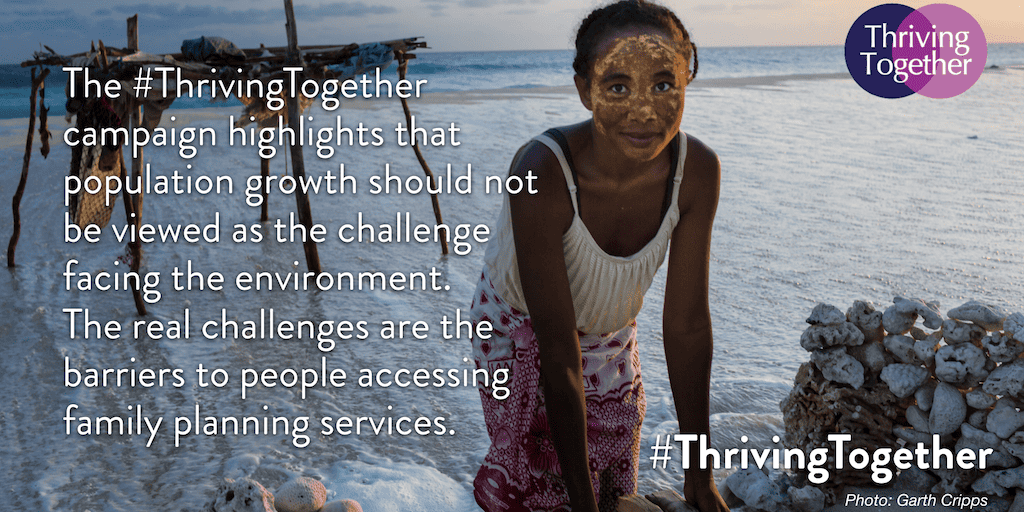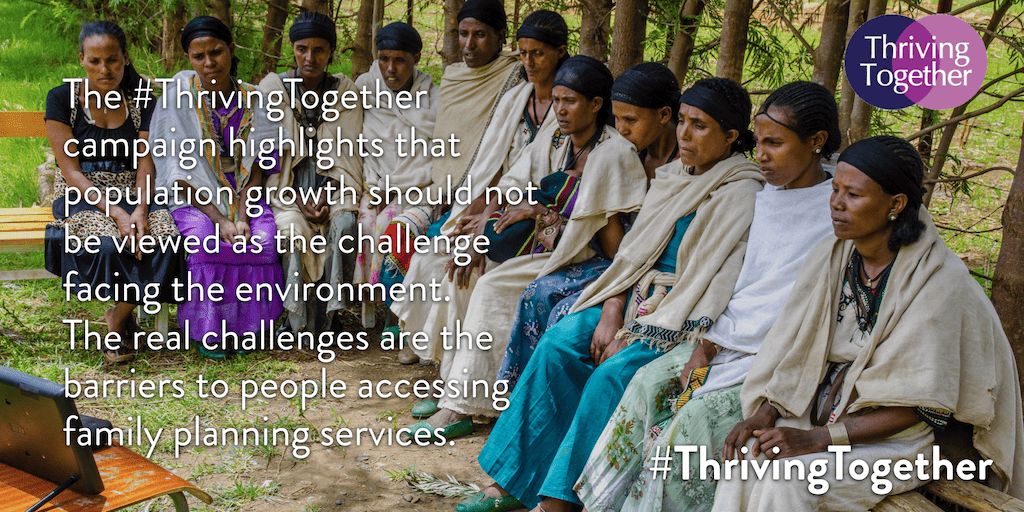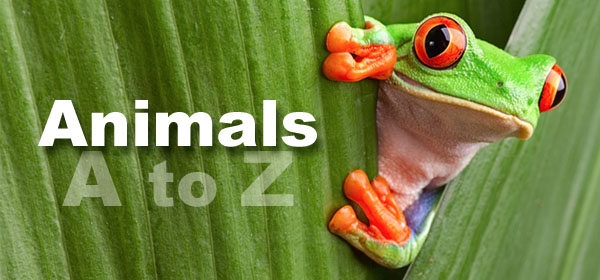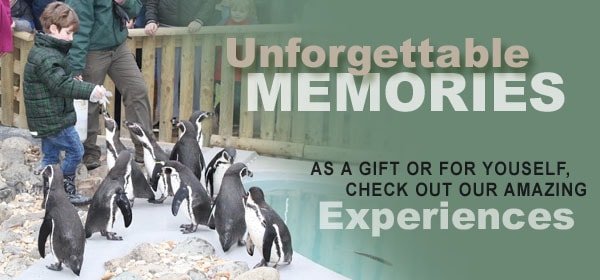WINGHAM WILDLIFE PARK JOINS THE THRIVING TOGETHER CAMPAIGN TO HIGHLIGHT THE WORLD’S MOST IMPORTANT YET IGNORED ENVIRONMENTAL ACTION
The Thriving Together campaign recognizes that family planning is critically important not only for women and girls but also for the environment
Today, Wingham Wildlife Park joins over 150 other leading environmental and reproductive health organizations to pledge support for a first-of-its-kind campaign: Thriving Together. Organizations that have signed up to the Thriving Together campaign form a diverse global alliance united by the agreement that improving access to family planning services is critically important for the environment and biodiversity.
Thriving Together from Margaret Pyke Trust on Vimeo.
The Sustainable Development Goals call for integrated solutions. Wingham Wildlife Park along with other organizations backing the Thriving Together campaign agree that whether working in health or environmental conservation, through sharing information and working together on strategic projects and policies, we can help human communities and their ecosystems thrive. Successful biodiversity conservation requires taking people, our health, and our interactions with the natural world into account.
Increasing human pressures are among the many challenges facing planetary health. In addition, by harming ecosystems, people undermine food and water security and human health, and threaten habitats and species. Ensuring family planning is available to all who seek it is among the positive actions organizations must take to lessen these pressures.

The United Nations projects that global population will rise from 7.7 billion today to 9.8 billion by 2050. Future population growth is uncertain however, and highly sensitive to small changes in the average number of children per mother. If the physical, financial, educational, social and religious barriers to people using family planning services were removed and the average number of children per mother was just 0.5 lower than the UN population projection which is most commonly used, global population would peak at 8.8 billion in 2050, rather than 9.8 billion.
This is all possible, by enabling the exercise of a well-recognized human right, that people should be able to decide for themselves, whether, when, how often and with whom to bring children into the world. Family planning contributes to women’s empowerment, improves family and general health, advances education and life opportunities and, by slowing population growth, eases pressures on wildlife and ecosystems.
Other organizations backing the Thriving Together campaign across the globe include Amphibian Ark, BIAZA, Bristol Zoological Gardens, Cheetah Conservation Fund, Chester Zoo, Durrell Wildlife Conservation Trust, Jane Goodall Institute, World Land Trust and Yerkes National Primate Research Center. Collectively, the organizations work in over 170 countries.
The Thriving Together campaign is spearheaded by the Margaret Pyke Trust, which has over 50 years’ experience of family planning and is the only member of the International Union for Conservation of Nature (IUCN) with this expertise.

Markus Wilder at Wingham Wildlife Park says:
“We first saw the value of this type of work almost 4 years ago when we first started to discuss this approach to conservation with the Margaret Pyke Trust while we were looking for a project to support which had implications on wild chimpanzee populations. We as a species are intrinsically linked to the planet and its well-being, so it makes perfect sense to us that working with human populations is an important step in wildlife and environmental conservation.”
David Johnson, Chief Executive at the Margaret Pyke Trust says:
“The existence of barriers to family planning is the most important ignored environmental challenge of our day. This changes now. The Thriving Together campaign encourages cross-sectoral support between health and environmental conservation organizations, showcasing that when people can choose freely whether and when to have children it is for the benefit of both people and planet. Barriers to family planning are not only relevant to those who are passionate about improving health, gender equality, empowerment and economic development, but also to those who are passionate about the conservation of biodiversity, the environment and sustainability.”
The Margaret Pyke Trust’s Thriving Together campaign is informed by its paper ‘Removing Barriers to Family Planning, Empowering Sustainable Environmental Conservation’, which sets out how and why family planning is important for the environment. The Thriving Together campaign website www.thrivingtogether.global will be launched on 11th July 2019.
Thriving Together
First 151 Endorsing organisations
As at 9 July 2019
- Africa Youth for SDGs
- ALERT
- Associação Moçambicana para Desenvolvimento da Família
- Amphibian Ark
- Association Djibouti Nature
- Association Les Amis des Oiseaux
- Association pour la conservation de la Nature au Rwanda
- BIAZA
- Big Life Foundation Kenya
- Bill & Melinda Gates Institute for Population and Reproductive Health
- Blue Ventures Conservation
- Born Free Foundation
- Borneo Nature Foundation
- Botanic Gardens Conservation International
- Bristol Zoological Society
- Center for Biological Diversity
- CEPARD Global
- CHASE Africa
- Cheetah Conservation Fund
- Chester Zoo
- Children’s Investment Fund Foundation
- Climate Change Fighters Uganda
- Community Health Africa Trust
- Community Initiative for Social Empowerment
- Conservation CATalyst
- Conservation International
- Conservation Through Public Health
- Cote d’Ivoire SOS Forets
- DKT International
- Drayton Manor Zoo
- DSW
- Durrell Wildlife Conservation Trust
- Ecological Christian Organisation
- Eco-Time Capsule Project
- Elephant Family
- Eminence: Associates for Social Development
- Endangered Wildlife Trust
- Ethiopian Wildlife and Natural History Society
- Faculty of Sexual and Reproductive Healthcare
- Family Health Options Kenya
- Family Rescue Mission
- Feedback
- FHI 360
- Fountain of Hope
- FP2020
- FPA
- Frankfurt Zoological Society
- Freshwater Habitats Trust
- Friends of the Earth (England, Wales & NI)
- Fundación para el Ecodesarrollo y la Conservación
- Game Rangers Association of Africa
- Game Rangers International
- Global Ocean Trust
- Global Wildlife Conservation
- Greenpeace
- Greener Growth
- Health in Harmony
- Health Reform Foundation of Nigeria
- ICA Foundation
- Institute of Natural Resources
- International Centre for Birds of Prey
- International Crane Foundation
- IPAS
- IUCN CEESP
- IUCN Species Survival Commission’s Conservation Planning Specialist Group
- Jane Goodall Institute
- jhpiego
- JSI
- Lilongwe Wildlife Trust
- Longleat
- Maasai Wilderness Conservation Trust
- Margaret Pyke Trust
- Marie Stopes International
- Marwell Wildlife
- Maternity Worldwide
- Mount Kenya Trust
- MUVA Elderly Initiative Uganda
- Nature Kenya
- Nature Uganda
- Newquay Zoo
- Osienala-Friends of Lake Victoria
- PAI
- Paignton Zoo
- Partners in Population and Development Africa Regional Office
- Path
- PATH Foundation Philippines Inc.
- Pathfinder International
- Peace Parks Foundation
- People’s Trust for Endangered Species
- PHE Ethiopia Consortium
- Plan International UK
- Population Connection
- Population Council
- Population Institute
- Population Matters
- Population Media Centre
- Population Reference Bureau
- Practical Action
- PSI
- Rainforest Trust
- Reproductive Health Uganda
- Royal College of General Practitioners
- Royal College of Obstetricians and Gynaecologists
- SafeHands for Mothers
- Salamander Trust
- Salmon & Trout Conservation
- SHRINE
- Society for Conservation of Nature in Liberia
- Society for the Improvement of Rural People
- Southern African Wildlife College
- Stop Ivory
- The Ecological Citizen
- The Institute of Fisheries Management
- The Laikipia Wildlife Forum
- The Lakeland Trust for Natural Sciences
- The Nature Conservancy
- The Peregrine Fund
- The Rivers Trust
- The Sibthorp Trust
- The WILD Foundation
- The Zoological Society of London
- Thohoyandou Victim Empowerment Programme
- Transition Earth
- Tusk Trust
- UCL Institute for Global Health
- Uganda Protestant Medical Bureau
- Uganda Youth Alliance For Family Planning And Adolescents Health
- UK All-Party Parliamentary Group on Population, Development and Reproductive Health
- UK Overseas Territories Conservation Forum
- United Nations Environment World Conservation Monitoring Centre (UNEP-WCMC)
- UNFPA
- Universal Health Development Foundation
- Venture Strategies for Health and Development
- WellBeing International
- Wellington Zoo Trust
- WEtalk SERIES UGANDA –WSU
- What Works Association
- Wild Planet Trust
- WILD Trust
- Wilderness Foundation UK
- Wildlife ACT
- Wildlife Conservation Society
- Wildlife Reserves Singapore
- Wildlife Trust of India
- Wingham Wildlife Park Animal Welfare
- World Land Trust
- Yerkes National Primate Research Center, Emory University
- Youth and Women Aflame Uganda
- Youth Association for Development-Pakistan
- Zoologische Gesellschaft für Arten- u. Populationsschutz e.V.
- 34 Million Friends of UNFPA


